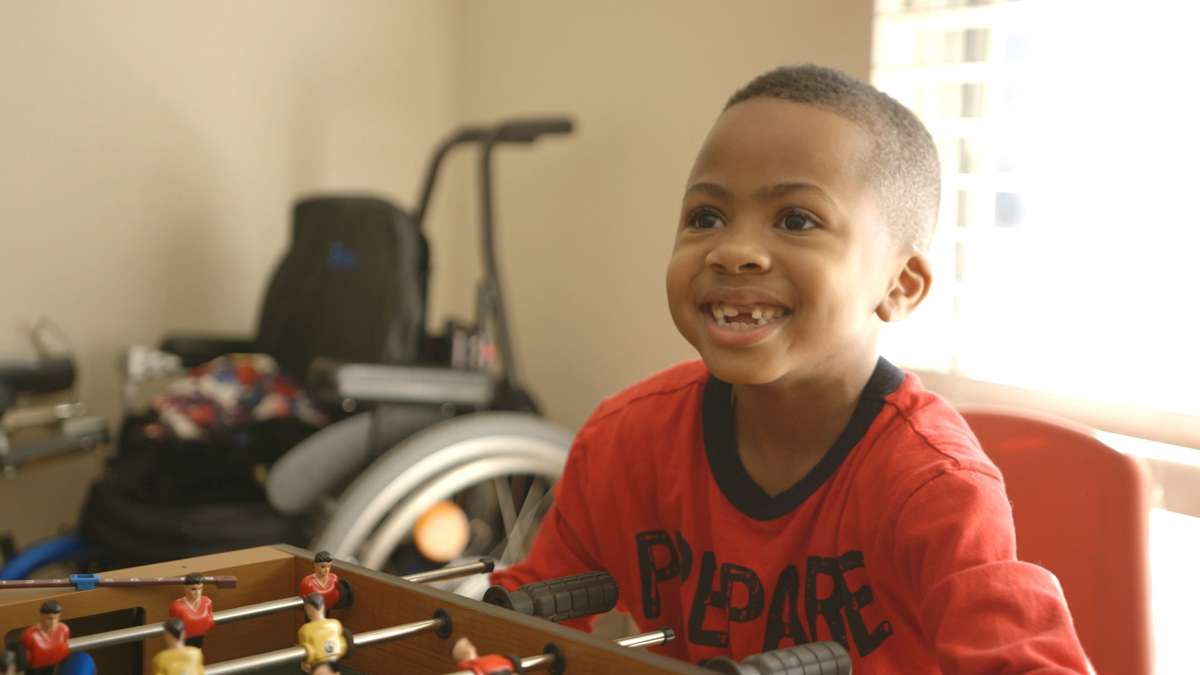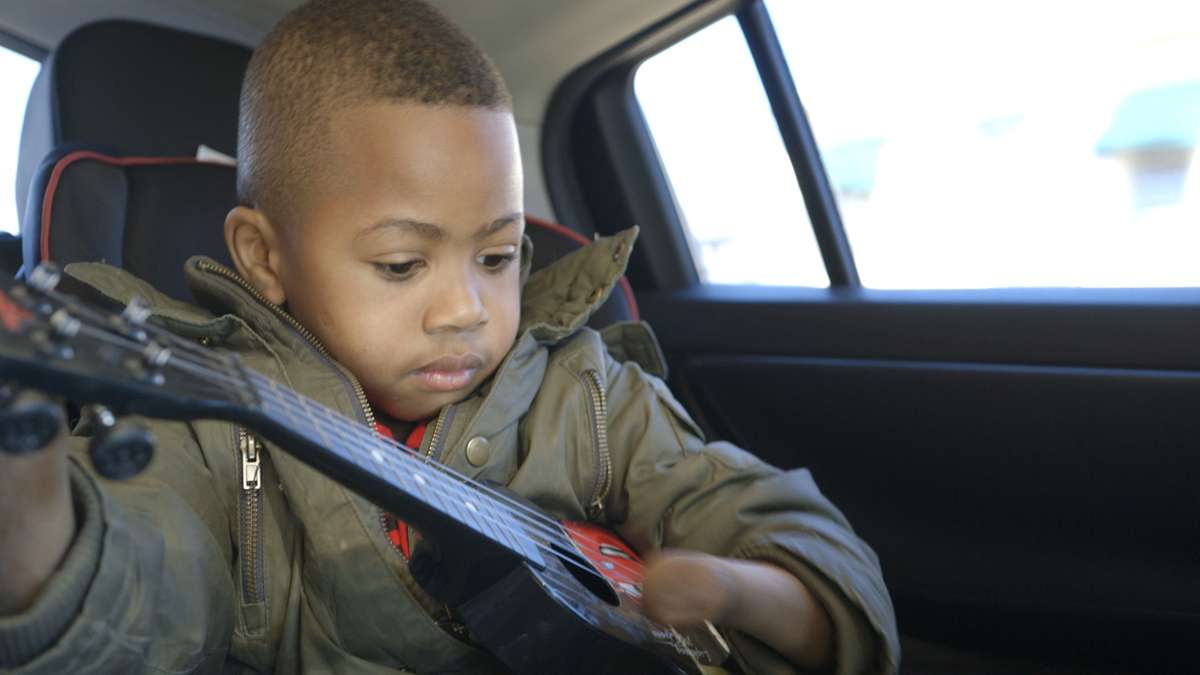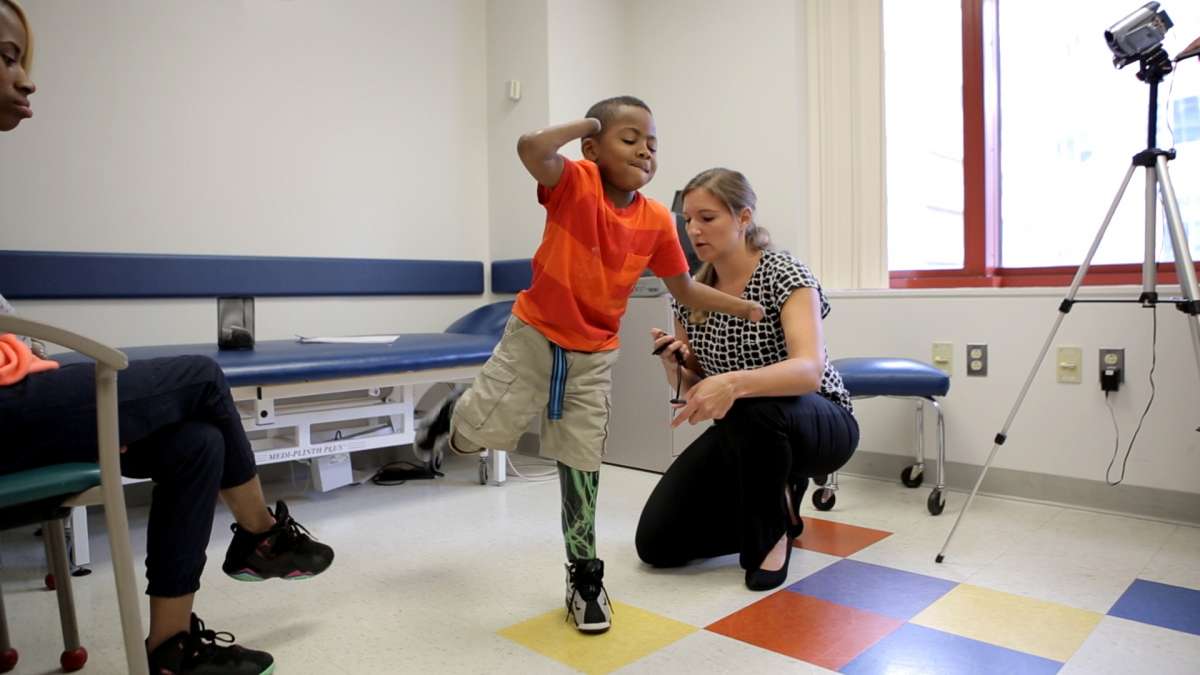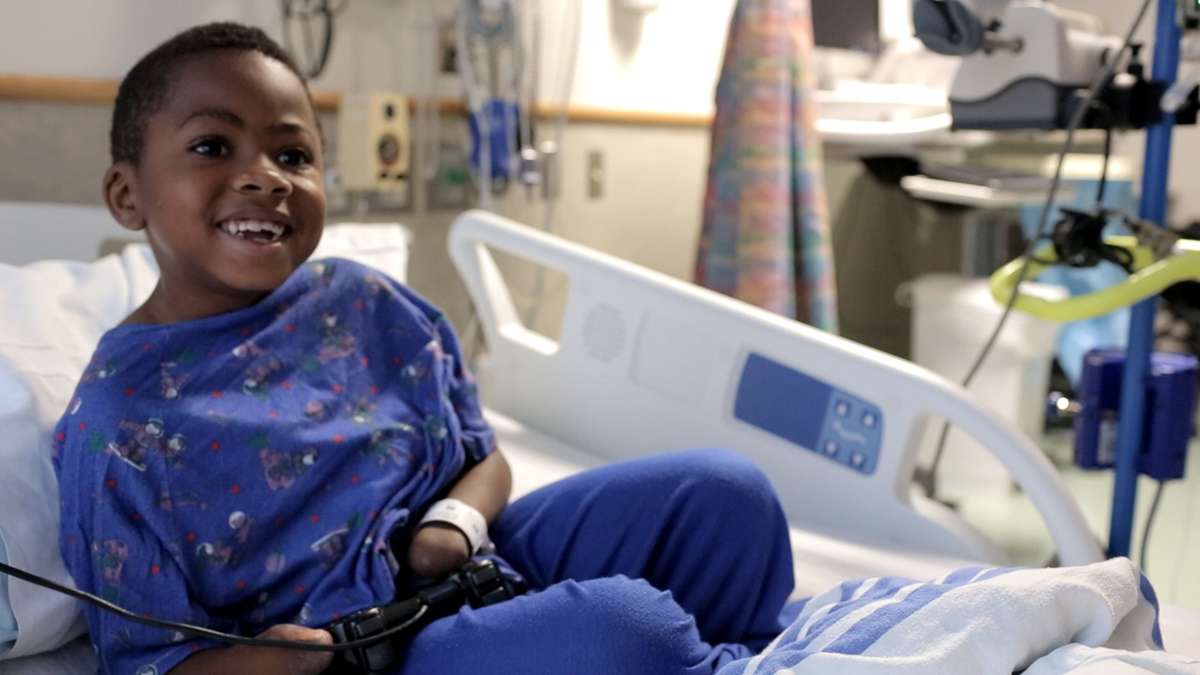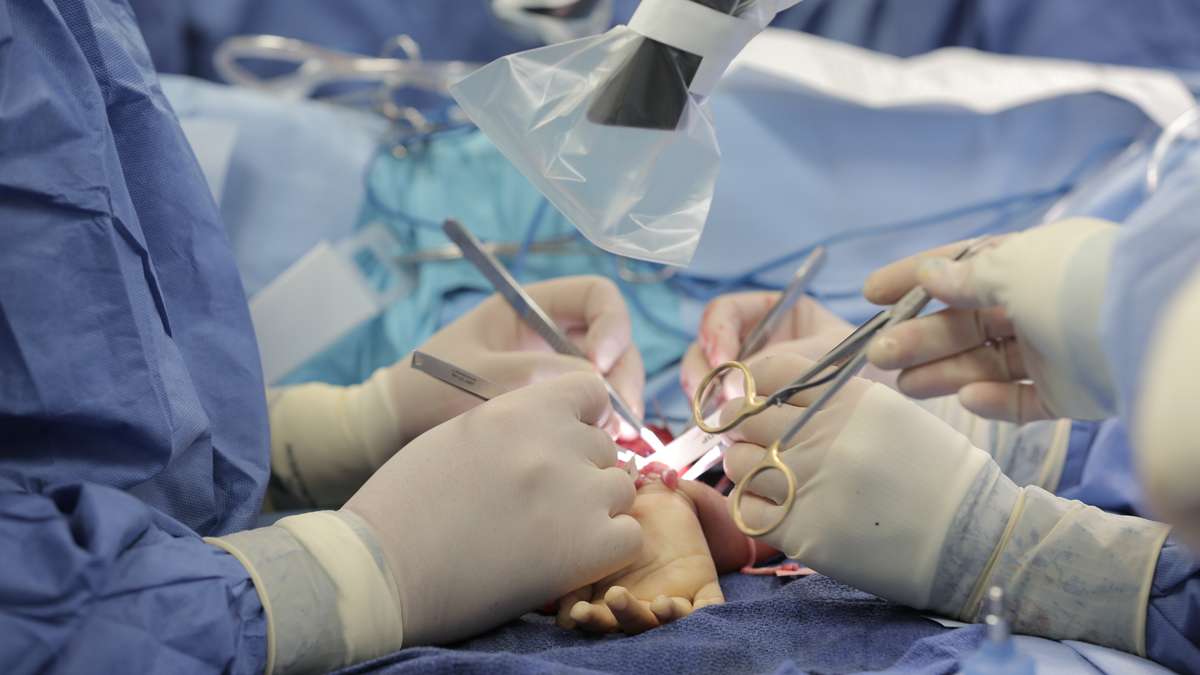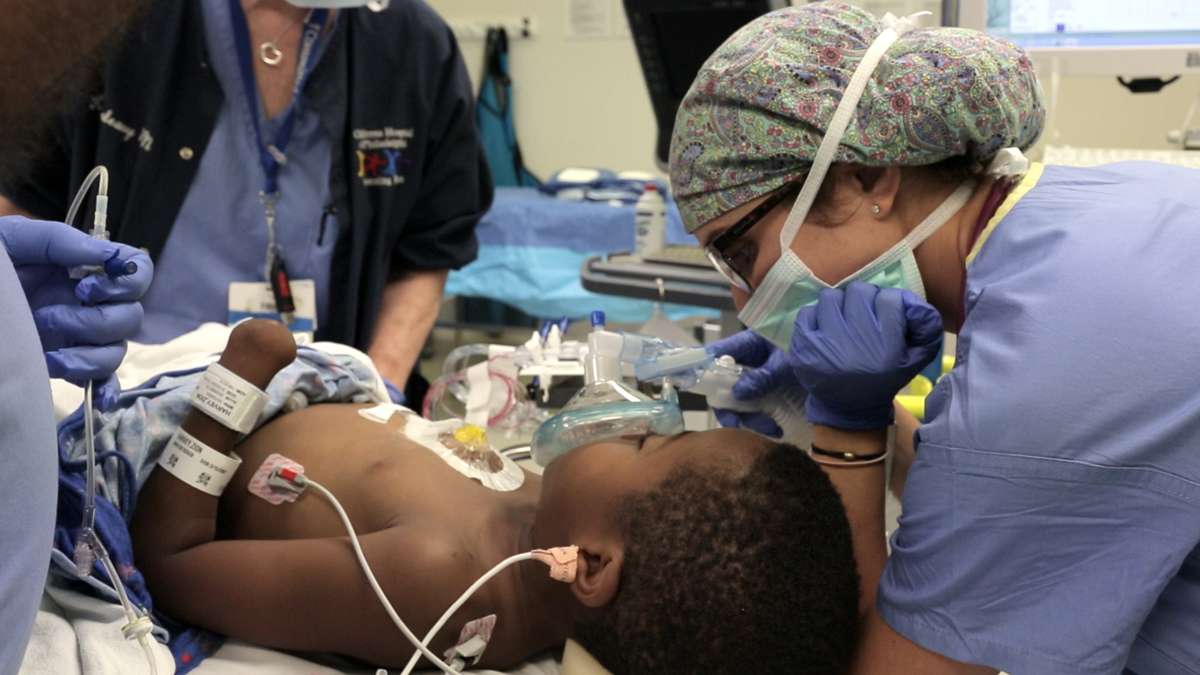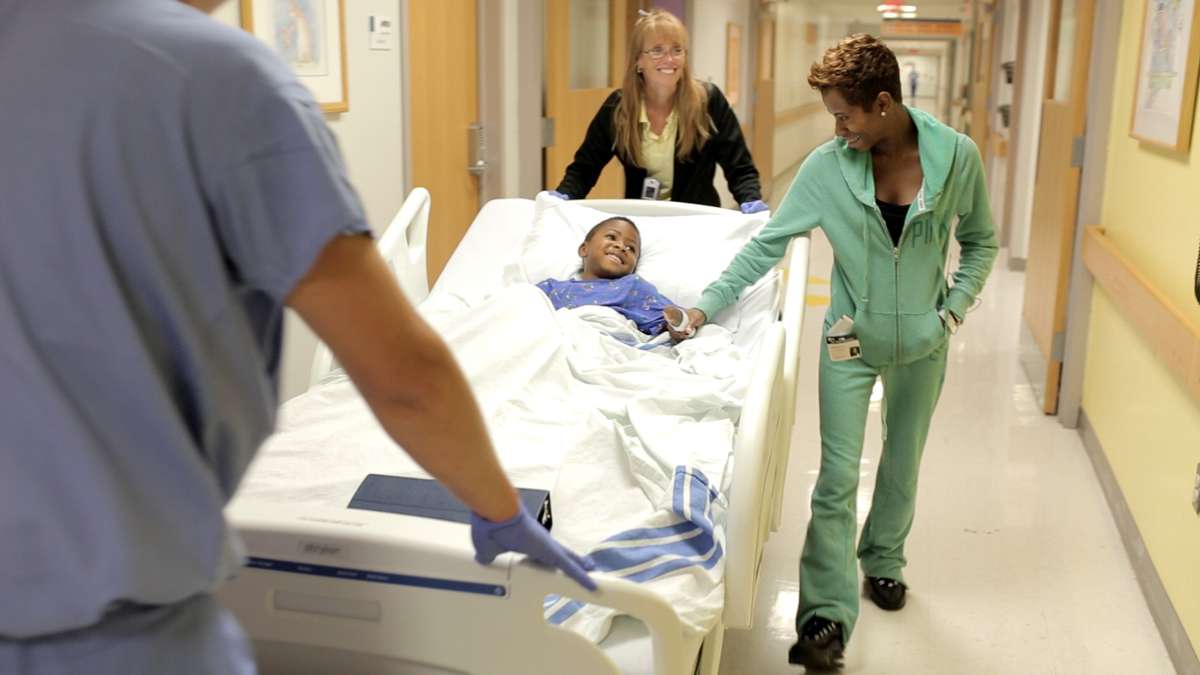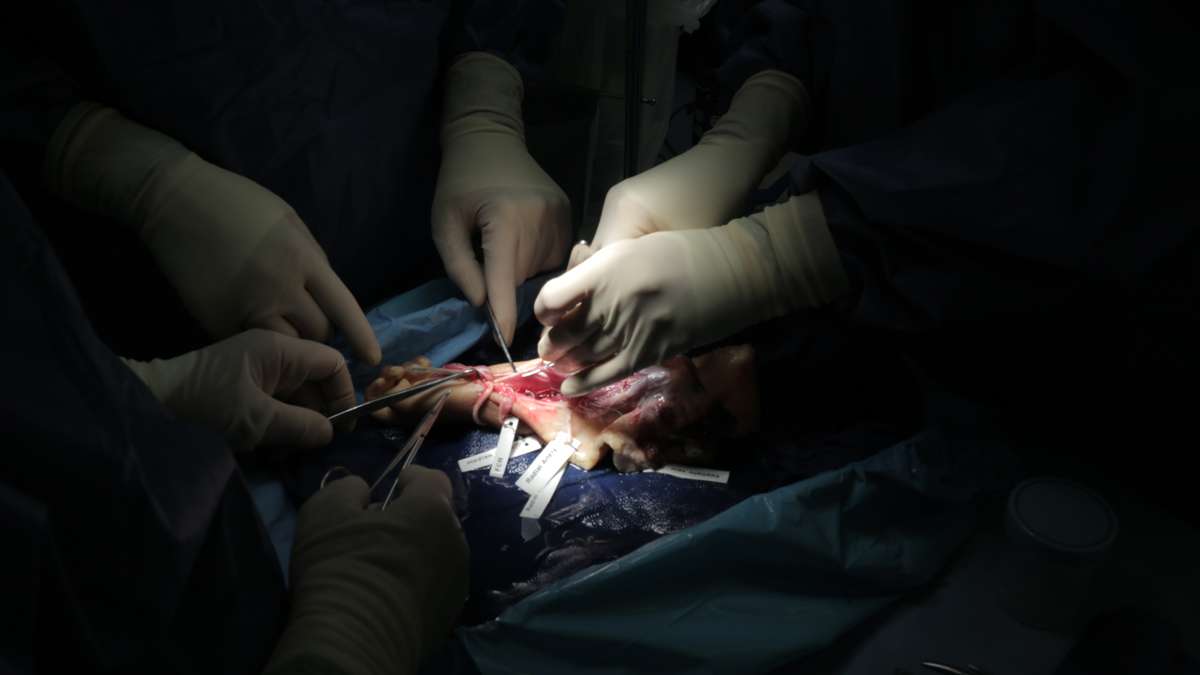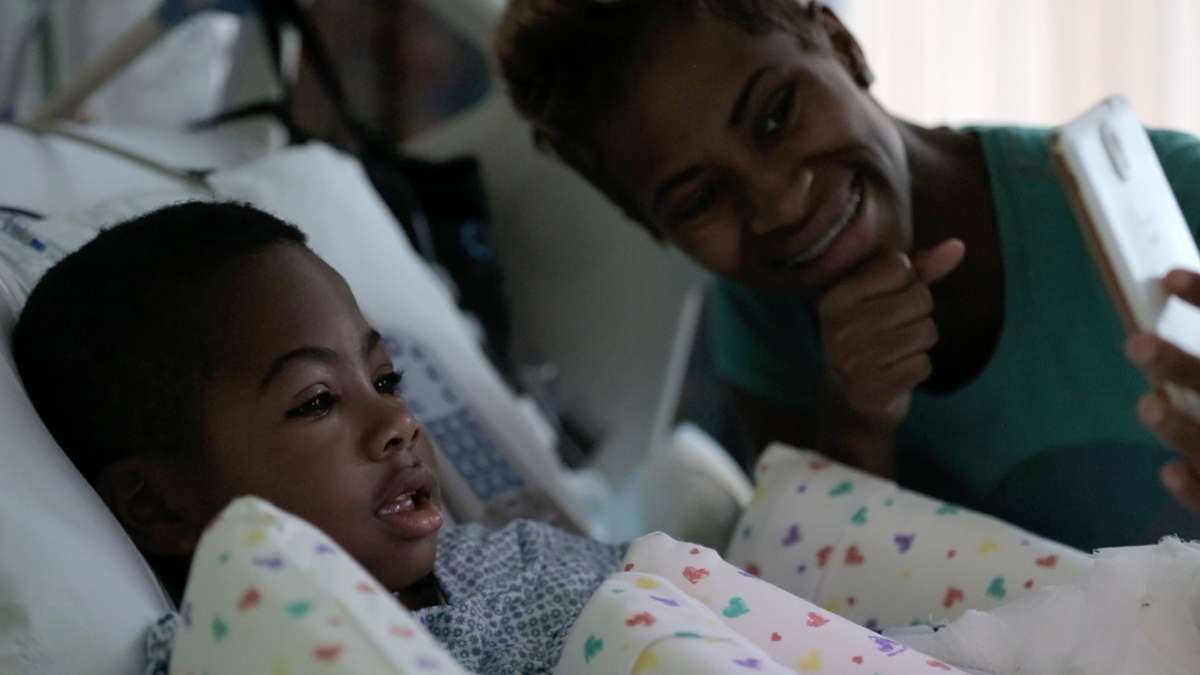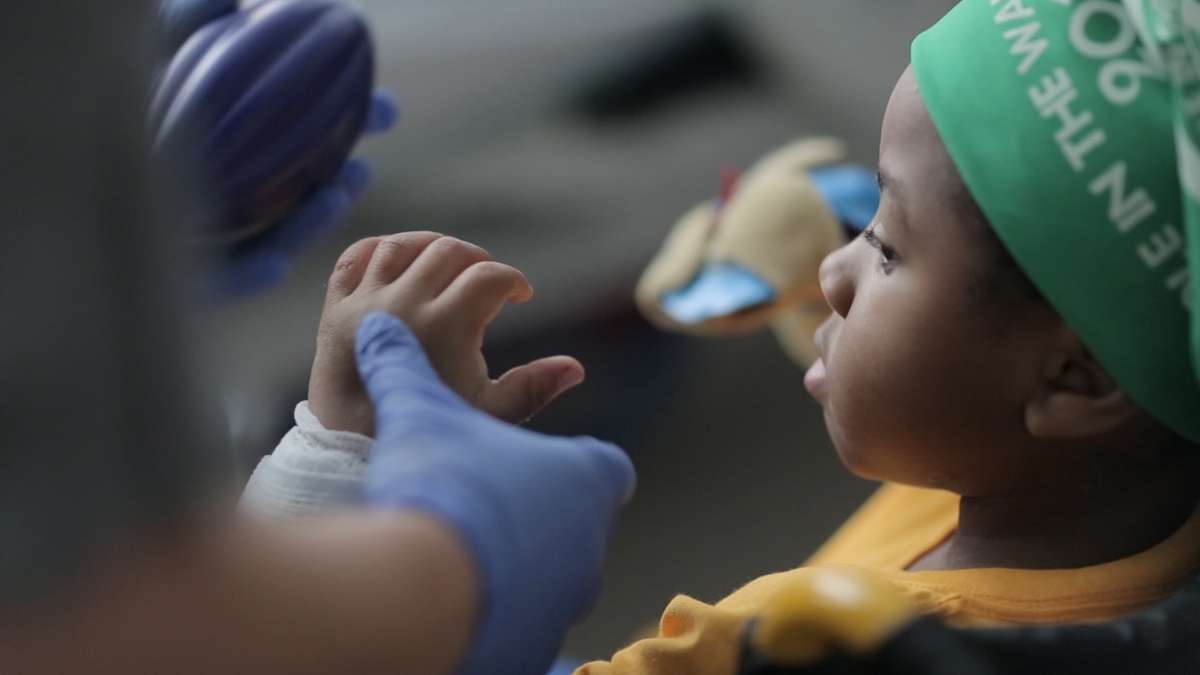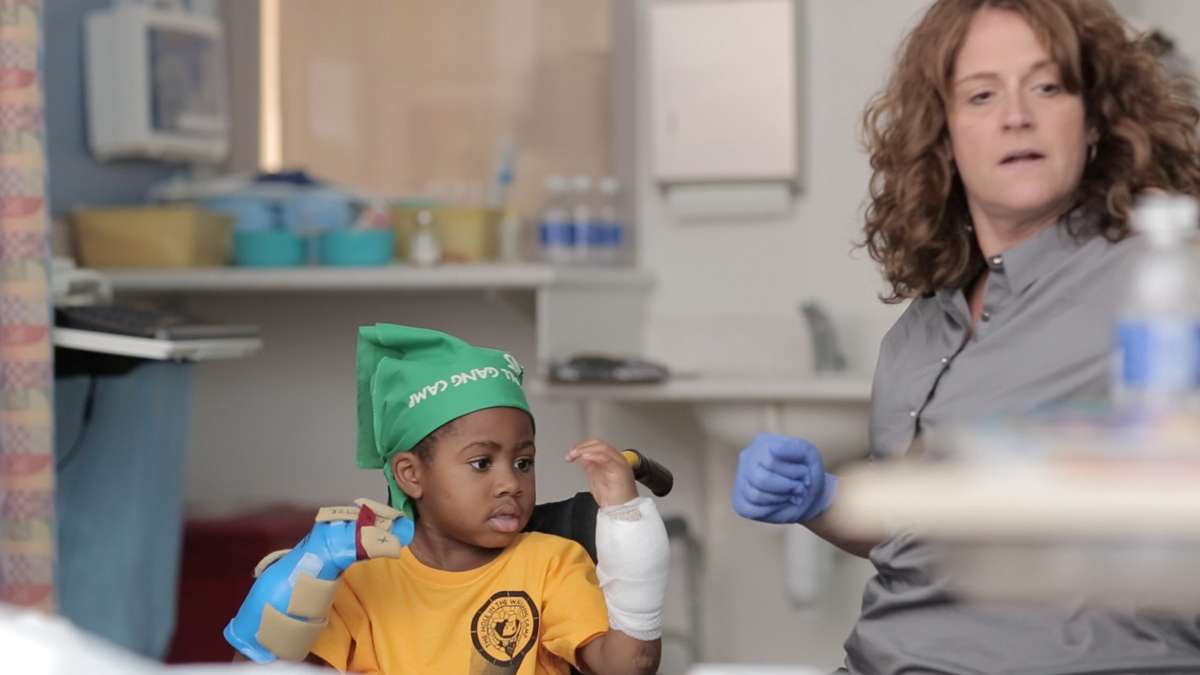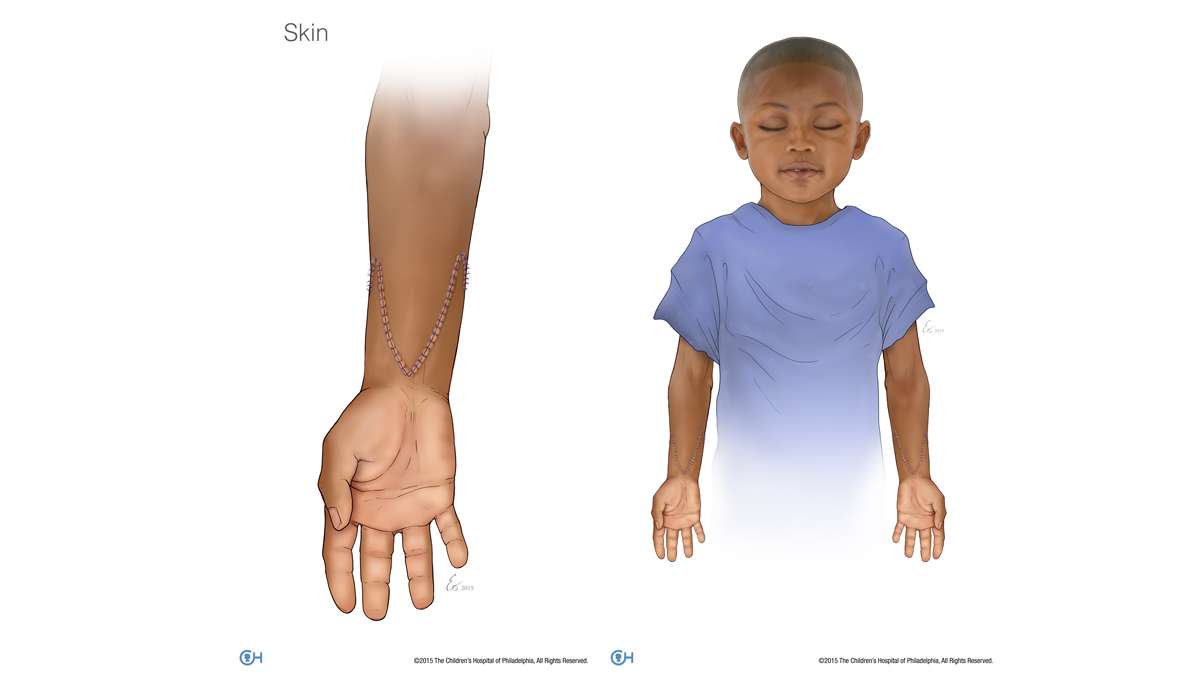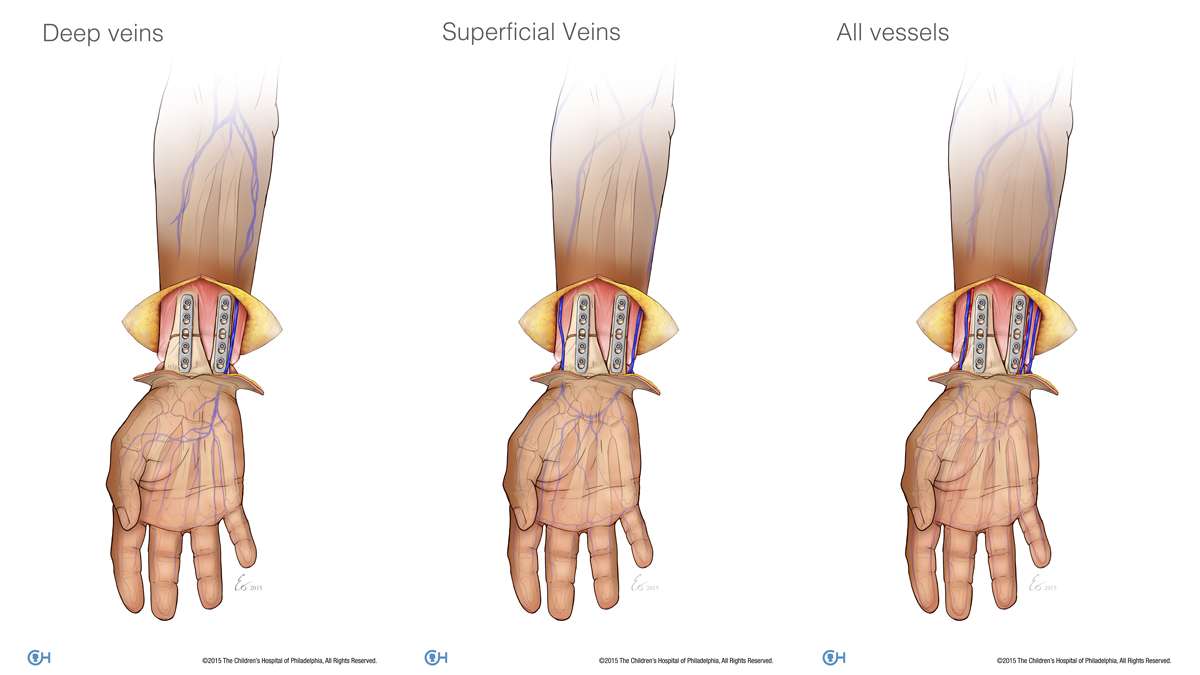Eight-year-old amputee gains new hands in first surgery of its kind at CHOP
Still in bandages, but with a smile on his face, young Zion Harvey of Baltimore once again has hands. Doctors at Children’s Hospital of Philadelphia and Penn have called it the first double-hand transplant in a child.
Zion lost his hands and feet to an infection when he was a toddler. Having hands again, he said, was “weird at first, but then good.” Mostly, he’s happy, and can’t wait to play with his sister.
“For me, it’s just like a blessing,” said his mother, Patty Ray, as she choked back tears.
The technically challenging operation took place this month and lasted nearly 11 hours. Four operating teams, including specialists from Penn, raced against the clock to re-establish blood flow to the donated hands. For each one, surgeons had to connect two bones, two arteries, four veins, a handful of nerves, and 22 tendons.
The perfect candidateDespite the complexity, surgeon Benjamin Chang said the real barrier to the unprecedented procedure was finding the right patient.
“When you do this operation, they have to stay on medication for the rest of their lives to keep them from rejecting the part,” he said. “Nobody was willing to take that hurdle with a child, who would have to stay on for much longer than say, a 65-year-old adult.”
Eight-year-old Zion was already taking those immunosuppressants for an earlier kidney transplant related to the infection. Physically and psychologically strong, he was an ideal case.
“It was no more of a risk than a kidney transplant,” said Ray. “I was willing to take that risk for him — if he wanted it — to be able to play monkey bars and football.”
An early wiggleZion is facing many years of rehab, and Chang said it would take about a year to know how much function the boy can expect to have.
Scott Kozin, one of the doctors at Shriners who referred Zion to CHOP for the transplant, said it would take about six to eight months for him to regain feeling in his hands. Because the original amputation was done not far from the wrist, and children regrow nerves about twice as fast as adults, Kozin said Zion’s prospects are good.
“I expect Zion to get very good sensation,” he said. “If you think about where the hands were put back on, the nerves don’t have far to grow.”
Already, Zion can wiggle his fingers. After regaining basic movement and the ability to grasp large objects, he will move on to picking up things like Cheerios and Legos.
A constant worryThe main concerns now are infection and rejection.
“All the time, every day, every hour, we worry about it,” said Chang of rejection. “We check him several times a day.”
Fortunately, that shows up as a rash on the skin, and doesn’t require blood tests like other transplants.
As much as Zion wants to get out on the playground, he’s aware the surgery might fail.
“I think in some way shape or form, the back of his mind, he’s a little bit realistic,” said Kozin. “He hopes this’ll work, he wants this to work; it’s likely to work. But there’s a smidge of a chance that something bad could happen and he could lose his limbs.”
“If it didn’t go well,” Zion said simply on Tuesday, “I would have my family to fall back on.”
WHYY is your source for fact-based, in-depth journalism and information. As a nonprofit organization, we rely on financial support from readers like you. Please give today.


